Search
Search Results

Definition
B-17 Flying Fortress
The Boeing B-17 Flying Fortress was a four-engined heavy bomber plane used by the air forces of the United States and Britain during the Second World War (1939-45). The B-17 had unusually heavy defensive armament, 13 machine guns in total...

Definition
Operation Gomorrah - The 1943 Bombing of Hamburg
Operation Gomorrah (aka the Battle of Hamburg or Hamburg Air Offensive) was a sustained area bombing campaign of the German port of Hamburg in four night attacks by the Royal Air Force and two daytime attacks by the United States Air Force...

Definition
Josiah Wedgwood
Josiah Wedgwood (1730-1795) was an English manufacturer and inventor who designed and created pottery of all kinds. Noted for his jasper stoneware, Wedgwood was also innovative in how he set up his factory works, for embracing new technology...
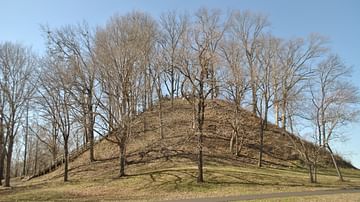
Definition
Pinson Mounds
The Pinson Mounds are a State Archeological Park in Madison County, Tennessee, USA enclosing a prehistoric Native American religious site comprising earthen mounds built during the Middle Woodland Period (c. 200 BCE - 500 CE). Although there...
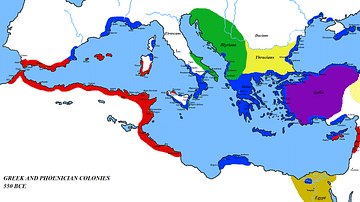
Definition
Uat-Ur
Uat-Ur was the ancient Egyptian name for the Mediterranean Sea (also known as Wadj-Wer) and is translated as 'the Great Green'. Uat-Ur was understood as a living entity imbued with the spirit of the divine which, like all other aspects of...
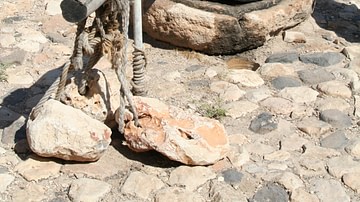
Image
Oil Press, Tell Hazor
Reconstructed 8th-century BCE olive oil press at Tell Hazor.
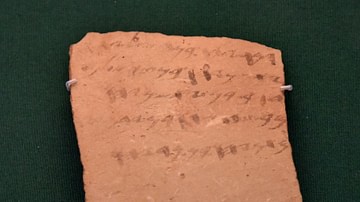
Image
Lachish Letter I
This is Lachish Letter I, a pottery ostracon with Hebrew inscription. This ostracon is probably a fragment of a wheel-made storage jar. The so-called "Lachish Letters" are documents consisting of potsherds inscribed in black ink (known...
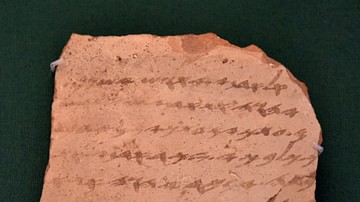
Image
Lachish Letter II
This is Lachish Letter II, a pottery ostracon with Hebrew inscription. This ostracon is probably a fragment of a wheel-made storage jar. The so-called "Lachish Letters" are documents consisting of potsherds inscribed in black ink (known...
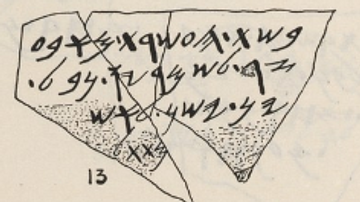
Image
Samarian Ostracon 13
A facsimile of an ostracon discovered at Samaria, dating to the 8th century BCE. The writing is ancient Hebrew.
George Andrew Reisner. Harvard Excavations at Samaria, 1908-1910. Cambridge: Harvard University Press, 1924.
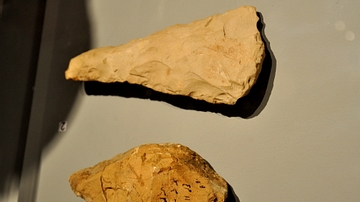
Image
Hand Axe and Stone Tool
These were found in Barda Balka and are considered the oldest human-made artifacts among the whole museum's collections. Circa 100,000 BCE, from Barda Balka (near modern Chamchamal, Sulaimaniya Governorate, Iraq). (The Sulaimaniya Museum...